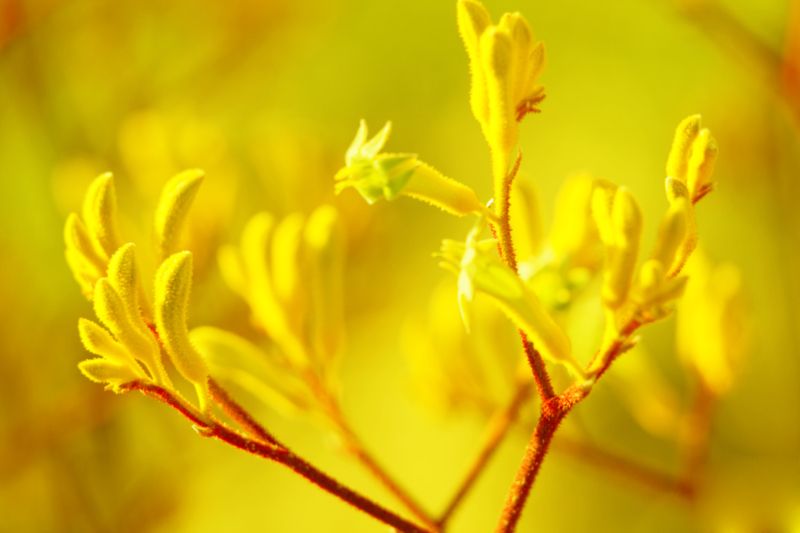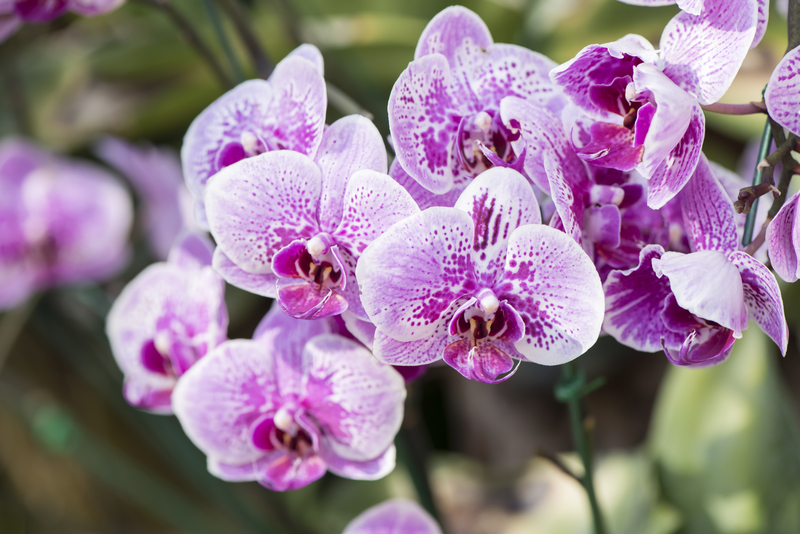Start Your Gardening Journey with These 9 Tips
Posted on 17/08/2025
Start Your Gardening Journey with These 9 Tips
Are you ready to embrace the world of gardening but not sure where to begin? Starting your gardening journey can be both exciting and rewarding. Whether you have a large backyard or a small balcony, these 9 essential gardening tips will set you on the path to growing healthy, thriving plants. In this comprehensive guide, discover practical advice, expert insight, and everything you need to cultivate your own green oasis.
Why You Should Start Gardening Today
Gardening is much more than just a hobby. It offers numerous benefits, including:
- Boosting your physical and mental well-being
- Providing a source of fresh, organic food
- Enhancing the aesthetic value of your home environment
- Connecting you with nature and the outdoors
- Reducing stress levels and promoting relaxation
Starting your gardening journey can feel overwhelming at first, but with the right guidance and a few proven tips, you will be well on your way to cultivating a flourishing garden.

Start Your Gardening Journey: 9 Tips Every Beginner Should Know
1. Select the Right Location
One of the key factors in successful gardening is choosing the optimal spot for your plants to thrive. Observe your available space to determine how much sunlight and shade it receives throughout the day. Most plants require at least 6-8 hours of sunlight, so select an area that meets their needs. If you're limited on space, consider container gardening or vertical gardening techniques.
- Look for areas sheltered from strong winds
- Avoid low-lying spots prone to waterlogging
- Ensure easy access to water sources
2. Understand Your Soil
Healthy soil is the foundation of every thriving garden. Before planting, take the time to evaluate your soil type (clay, sandy, loam, silt) and quality. Perform a simple soil test to determine its pH level and nutrient content. Amend your soil with compost or organic matter as needed to improve fertility and drainage.
- Test soil using affordable DIY kits
- Add organic compost for nutrient-rich growing beds
- Mulch around plants to retain moisture and inhibit weeds
Starting your gardening journey with well-prepared soil gives your plants the best start possible.
3. Choose Easy-to-Grow Plants for Beginners
A common mistake among novice gardeners is starting with plants that are difficult to maintain.
- Opt for resilient varieties such as lettuce, tomatoes, herbs, or marigolds
- Pick plants suitable for your region's climate
- Mix annuals and perennials for a garden that thrives year-round
4. Plan Your Garden Layout
A thoughtfully designed layout not only maximizes your gardening space but also ensures healthier plants. Map out your garden on paper, considering:
- Sunlight exposure and plant spacing needs
- Grouping plants with similar water requirements
- Allocating space for pathways or access areas
Using the right layout helps prevent overcrowding and makes routine care far easier.
5. Water Wisely
Watering is vital to plant health, but overwatering and underwatering are common beginner mishaps. Start your gardening journey right by establishing a consistent watering routine:
- Check soil moisture before watering--soil should feel damp, not soggy
- Water early in the morning to reduce evaporation and fungal growth
- Use mulch and drip irrigation to conserve water
6. Feed Your Plants Naturally
Nutrient-rich soil supports healthy, vigorous growth. Resist the urge to rely on synthetic fertilizers at first. Instead, opt for natural plant food sources, such as:
- Compost made from kitchen and garden waste
- Organic fertilizers like fish emulsion or worm castings
- Mulches made from straw, leaves, or wood chips
Feeding your garden organically leads to better soil health and sustainability in the long run.
7. Master Basic Garden Maintenance
Consistency is key when it comes to garden care. Incorporate these routine tasks into your gardening schedule:
- Regular weeding to reduce plant competition
- Pruning and deadheading to encourage new growth
- Checking for pests and diseases frequently
- Tidying up fallen leaves and debris
Maintaining your garden regularly will make a remarkable difference in plant health and overall beauty.
8. Learn to Identify and Manage Pests Organically
Pest problems are inevitable, but using chemical pesticides can harm pollinators and beneficial insects. Start your gardening journey with eco-friendly pest control methods:
- Encourage beneficial insects such as ladybugs and lacewings
- Use physical barriers like row covers or netting
- Hand-pick pests when possible
- Apply homemade solutions like neem oil spray
Above all, gardening is a journey--there will be successes and setbacks along the way. Take time to enjoy each step, experiment with new plants, and expand your skills.
With every seed you plant, your confidence and knowledge will grow. Don't be afraid to make mistakes--each misstep is an opportunity to learn.
The optimal time to start a new garden varies by region and plant type. Generally, spring and early fall are ideal for most outdoor gardening. Consult your local planting calendar for precise seasonal guidelines.
For small-space gardeners, container gardening and vertical gardens work wonders. Choose compact or dwarf plant varieties, use hanging baskets, and maximize sunlight by moving containers as needed.
Watering needs depend on plant species, weather, and soil type. As a rule of thumb, most plants prefer deep, infrequent watering over shallow, daily sprinkles. Aim to keep the soil consistently moist.
You can begin with just a few essentials:
Invest in quality tools as your garden grows.
Whether you dream of growing your own food, creating a vibrant flower garden, or simply enjoying time outdoors, starting your gardening journey is an incredibly fulfilling pursuit. With these 9 expert gardening tips, you'll be primed for success from the very beginning. Remember, a thriving garden starts with enthusiasm, curiosity, and a willingness to learn. Grab your gloves, sow those seeds, and embark on a rewarding adventure in your own green space!
For more expert advice, inspiration, and step-by-step guides, explore our related articles below and keep cultivating your passion for gardening.
Start your gardening journey today--and watch as your garden, and your love for nurturing life, grows day by day!
Unleash the Joy of Gardening with Your Dog Proven Techniques for Nurturing Orchids Successfully Vital Garden Tools for Enthusiasts of the Outdoors Grow a Kid-Friendly Paradise in Your Garden Crafting Calmness: Zen Garden Designs for a Harmonious Outdoor Space9. Keep Growing, Learning, and Having Fun!

Frequently Asked Questions About Starting Your Gardening Journey
What is the best time of year to start a garden?
How do I garden successfully with limited space?
How often should I water my garden?
What tools do I need to start gardening?
Conclusion: Embrace Your Gardening Adventure Today
Latest Posts



